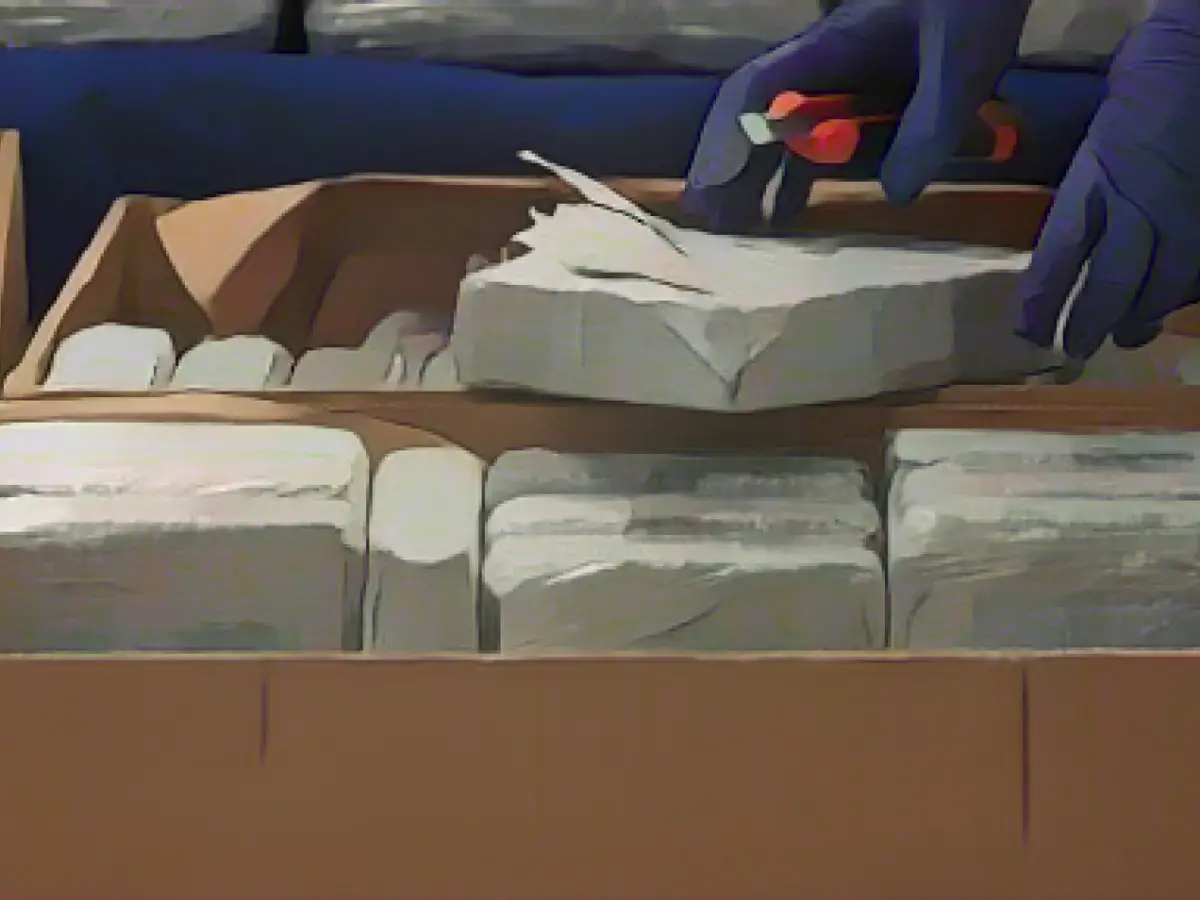Drugs - Europol: Cocaine smuggling will continue to increase
According to Europol, the smuggling of cocaine to Europe will continue to increase. In view of the increasing production in South America, the number of shipments will rise over the next two years, Europol chief Catherine De Bolle told the German Press Agency in The Hague. "We can't stop it completely, because the demand is too great."
At the same time, the European police authority based in The Hague points to the increasing success of investigators in the fight against international drug trafficking. Last year, more than 300 tons of cocaine were confiscated. Europol has never had such a good insight into the organization of drug smuggling as last year, said De Bolle. This applies to both international distribution channels and local sales.
Most of the cocaine is smuggled from South America to Europe by sea and enters the EU mainly via the ports of Antwerp and Rotterdam. Customs investigators are increasingly finding large quantities of the drugs hidden in containers. In Rotterdam, for example, they seized the largest single quantity to date in August: around 8,000 kilograms of cocaine worth around 600 million in a container with bananas.
Investigators also made a find in Germany: Police and customs investigators intercepted a record amount of cocaine in 2023. According to a preliminary forecast by the Federal Criminal Police Office (BKA), the drug finds totalled 35 tons, as a BKA spokesperson said before the turn of the year. In 2022, the figure was around 20 tons.
Digital communication channels of the gangs cracked
According to Europol's findings, the seized shipments are probably only a fraction of the smuggled cocaine. "But it's starting to hurt the gangs," said De Bolle. They are increasingly trying to get the confiscated cocaine back. In the meantime, they were even equipping shipments with trackers to be able to follow them precisely.
The investigators' successes were made possible after they cracked the gangs' digital communication channels. "This gave us a seat at the table with the criminals, and they felt totally safe," said De Bolle.
According to the Europol chief, the criminal networks are now communicating much more carefully, especially via many small channels. They are also looking for new transportation routes and are setting up laboratories in Europe where cocaine is produced from the raw materials themselves.
According to Europol, violence also increased in 2023 in connection with drug trafficking. "There is so much to earn and the competition is fierce," said De Bolle, who comes from Belgium. She cited explosives attacks in the Netherlands and Belgium as well as violent acts in Sweden and France as examples. "We didn't see the scale of this ten years ago."
Focus on money flows
Europol is also increasingly focusing on money flows in the fight against the drug mafia. "We didn't focus enough on this for a long time. This is now being intensified." It is estimated that only two percent of the profits are actually discovered and confiscated. In Europe alone, Europol estimates the volume of cocaine trafficking at more than 5.7 billion euros per year.
"The gangs have amassed an enormous fortune," said the Europol chief. They also invested this in the legal economy, speculating on the stock markets, buying real estate or cryptocurrencies. Corruption and infiltration are also increasing the destabilization of society.
Europol urges the EU Commission to facilitate access to digital channels. Investigators' hands are often tied due to the strict data protection laws in Europe, said De Bolle. "Successful investigations are now also dependent on chance. Can we decrypt access data or not?"
Read also:
- Floods: water levels remain critical in many places
- Snow chaos further restricts Bavaria
- Continuous operation in the flood areas
- Flood situation remains tense in many places
- Despite Europol's warnings about the increase in cocaine smuggling from South America to the Netherlands and other European countries, the Dutch Police continues to struggle with the issue.
- The German Press Agency reported that the Netherlands, being a key transit point for drugs, faces challenges in preventing the smuggling of cocaine, particularly from South America.
- Despite the German Press Agency's report on the increasing smuggling of cocaine from South America to Antwerp and Rotterdam, the Dutch police and customs teams are relentless in their efforts to combat drug trafficking.
- The Police in Antwerp and Rotterdam, two major ports in the Netherlands, have had several successes in seizing large quantities of cocaine, including the largest single haul of 8,000 kilograms in August 2023.
- Europol's chief, Catherine De Bolle, highlighted the success of investigators in the fight against international drug trafficking, pointing out the confiscation of over 300 tons of cocaine in Europe in 2022 alone.
- The Federal Criminal Police Office (BKA) in Germany reported a record-breaking year in 2023, with over 35 tons of cocaine seized, surpassing the 20 tons seized in 2022.
- The smuggling of drugs into Europe, including cocaine, is a complex issue that involves the use of digital communication channels to coordinate operations, a challenge that Europol is striving to overcome.
- Europol's focus on disrupting the financial flows of drug gangs has led to the confiscation of significant assets, including real estate, investments in cryptocurrencies, and speculative ventures on the stock market.
- In response to the EU Commission's call for increased access to digital channels, Europol is advocating for reforms to EU data protection laws, believing that it could significantly aid investigators in their fight against international drug trafficking.
Source: www.stern.de






